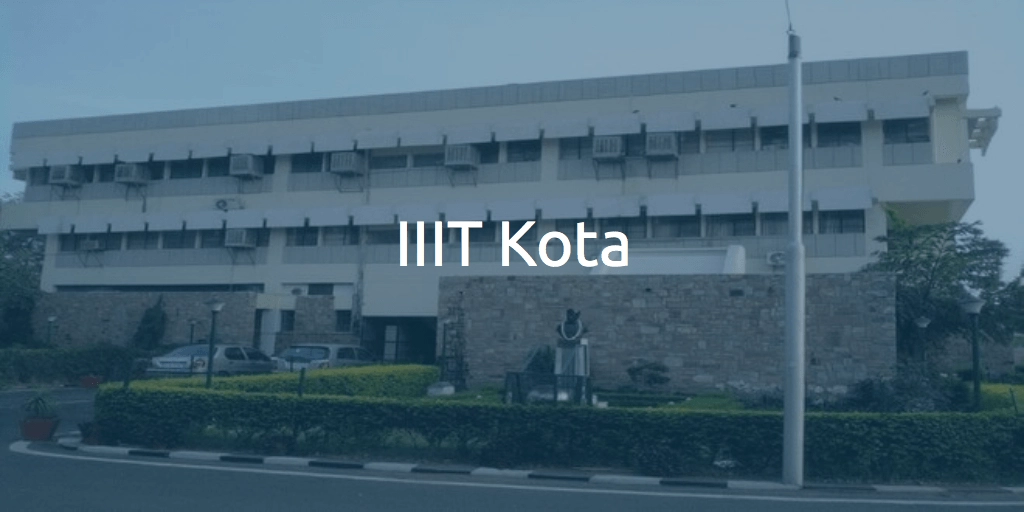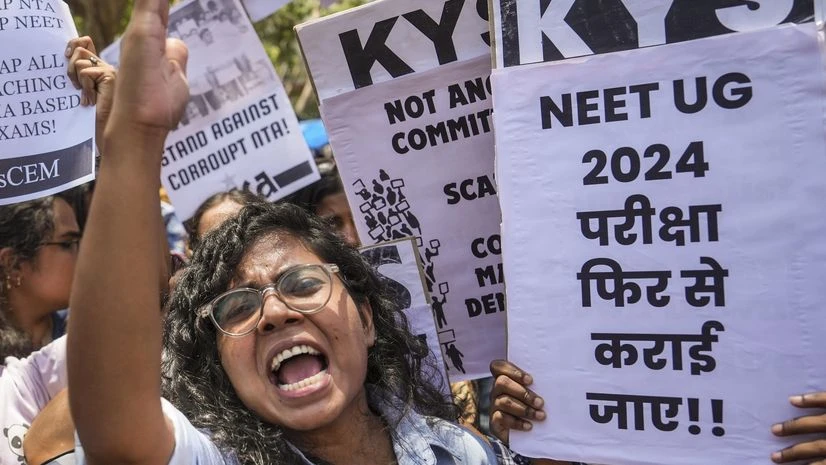Kota, Rajasthan, has emerged as a prominent hub for students aspiring to excel in competitive examinations, particularly the Joint Entrance Examination (JEE) and the National Eligibility cum Entrance Test (NEET). However, this city has also gained notoriety for a troubling trend: a significant rise in student suicides over the years. This editorial explores the alarming statistics, the pressures faced by students, and the broader implications of this crisis.

Rising Suicide Rates
Data reveals a disturbing increase in student suicides in Kota. In 2023 alone, the city recorded 26 suicides, marking it as the highest annual toll since 2015. This figure compares sharply with 15 suicides in 2022, 18 in 2019, and 20 in 2018 . The trend indicates a worrying escalation, with an average of three suicides per month reported in just the first eight months of 2023 . The statistics further illustrate that many of these tragic cases involved students who had recently arrived in Kota. For instance, a significant number of those who took their lives were under 18 years old and had been in the city for less than six months . This new pattern suggests that the pressures of academic performance combined with separation from family can be overwhelming for newcomers.
The Coaching Factory Phenomenon
Kota has transformed into what can be described as a "coaching factory," drawing over 200,000 students annually seeking to prepare for competitive exams. The city's coaching institutes generate an estimated annual revenue of ₹5,000 crore . These institutions often promise success but also create an environment rife with stress and competition. Students are subjected to rigorous schedules and high expectations, which can lead to mental health crises.As families send their children to Kota with hopes of securing a place in prestigious institutions like IITs or medical colleges, they often overlook the intense pressure that accompanies such aspirations. The phrase "Beta Kota mein IIT ki taiyari kar raha hai" (Son is preparing for IIT in Kota) has become commonplace among parents, reflecting societal expectations that can weigh heavily on young minds.
Mental Health Crisis
The recent surge in suicides has sparked concerns about a mental health crisis among students. Experts have pointed to various factors contributing to this issue. A principal psychiatrist noted that increased use of social media may lead to attention deficits and heightened anxiety among students . The constant comparison with peers and exposure to curated success stories online can exacerbate feelings of inadequacy.Despite several initiatives introduced by local authorities aimed at curbing these incidents—such as installing anti-hanging devices in hostel rooms and providing mental health support—many argue that these measures have been insufficient . The grim reality is that even with efforts to create a supportive environment, students continue to struggle under immense pressure.
)
The Paper Leak Scenario
Adding another layer of complexity to this issue is the recurring problem of paper leaks associated with competitive exams. Such incidents not only undermine the integrity of these examinations but also contribute to heightened stress among aspirants who fear that their hard work may be rendered meaningless due to external factors. This fear can lead to despair and feelings of hopelessness, further exacerbating mental health issues among students.
How has the reputation of Kota as the "suicide city" affected student enrollment?
The reputation of Kota as the "suicide city" has significantly impacted student enrollment, leading to a marked decline in the number of aspiring candidates flocking to this educational hub. This editorial examines the correlation between the city's troubling label and its student population, exploring the underlying factors contributing to this phenomenon.
The Alarming Statistics
Kota has seen a drastic reduction in student enrollments in recent years. In 2023, approximately 1.1 lakh students arrived in the city, a stark contrast to previous years when the average was over 2 lakh annually. The decline continued into 2024, with reports indicating that only 16,000 students enrolled in coaching centers, representing a 30-40% drop from earlier figures. This downturn is alarming, particularly given that Kota was once celebrated as India's coaching capital.

The "Suicide City" Tag
The label "suicide city" has emerged due to a series of tragic incidents involving student suicides. In 2023 alone, over two dozen suicides were reported, followed by 16 cases in 2024 . This grim reality has instilled fear among parents and students alike, leading to hesitancy about pursuing education in Kota. As one local hostel owner noted, previously bustling neighborhoods are now filled with "to-let" signs and vacant hostels, reflecting the city's changing landscape.
Parental Concerns and Student Expectations
Parents are increasingly wary of sending their children to Kota due to its negative portrayal in the media. The fear surrounding mental health issues and academic pressure has made many reconsider their decisions. A local hostel association president remarked that the negative image of Kota has created reluctance among parents to send their children there for coaching .This shift in perception is compounded by the reality that many students arrive with high hopes but face overwhelming stress and competition.
Economic Impact on Local Ecosystem
The decline in student numbers is not just a personal tragedy; it also affects Kota's economy. Each student typically spends around ₹2.5 lakh annually on coaching fees, accommodation, and living expenses. With fewer students, local businesses catering to this demographic are suffering. For instance, Coral Park, which was designed to accommodate 32,000 students, currently houses only about 8,000, leading to plummeting property values and reduced income for hostel owners
Coping Mechanisms and Initiatives
In response to the crisis, various initiatives have been introduced to support students' mental health. These include 24/7 helplines, counseling services, and community events aimed at reducing stress.
However, despite these efforts, the stigma surrounding mental health issues remains prevalent, making it difficult for students to seek help when needed.

What are the long-term economic impacts of the decline in student enrollment in Kota?
The decline in student enrollment in Kota has profound long-term economic impacts that extend beyond the immediate coaching and hostel industries. As Kota grapples with its reputation as the "suicide city," various sectors are feeling the repercussions of this downturn.
Significant Revenue Loss
Kota's coaching and hostel industries have experienced a drastic revenue decline, with annual earnings plummeting from approximately ₹6,500 to ₹7,000 crore to around ₹3,500 crore due to a sharp drop in student numbers—from about 2.5 lakh to between 85,000 and 1 lakh students in recent years . This significant loss not only affects coaching centers but also impacts ancillary businesses, including mess services, stationery shops, and local retail outlets that depend heavily on the student population.
Impact on Local Businesses
The economic ecosystem of Kota is intricately tied to its educational institutions. With fewer students, businesses that cater to them are struggling. For instance, many hostels that once thrived are now facing occupancy rates as low as 40-50%, leading to financial distress for owners who often took loans to build these facilities . Local shops report sales declines of up to 50%, and many have begun closing or downsizing due to reduced foot traffic .
Employment Challenges
The decline in student enrollment has also led to job losses within the educational sector. Reports indicate that more than 4,000 faculty and administrative positions have faced salary cuts ranging from 20% to 30% or even layoffs as institutions struggle to cope with the reduced number of students . This not only affects teachers but also administrative staff and support workers who rely on the coaching industry for their livelihoods.

Changes in Real Estate Dynamics
The real estate market in Kota has also been adversely affected. With many hostels and PG accommodations empty, property values are declining, and landlords are struggling to find tenants . The once-booming rental market for student housing is now saturated with "to-let" signs, indicating a shift that could lead to long-term changes in property investment strategies within the city.
Shift Towards Online Education
The rise of online education platforms has further complicated the situation. Many students are opting for flexible online courses instead of relocating to Kota for traditional coaching. This shift not only reduces immediate demand for physical accommodations but also indicates a potential long-term transformation in how education is delivered and consumed . As more students choose online alternatives, Kota's status as a premier educational hub may continue to diminish unless it adapts to these changing dynamics.
Conclusion
The reputation of Kota as a "suicide city" has had profound implications for student enrollment and the local economy. As fear and stigma continue to shape perceptions of this educational hub, it is crucial for stakeholders—educators, parents, and local authorities—to work collaboratively towards fostering a supportive environment that prioritizes mental health alongside academic success. Only through concerted efforts can Kota hope to reclaim its status as a nurturing ground for aspiring engineers and doctors while alleviating the pressures that have led to such tragic outcomes.
With inputs from agencies
Image Source: Multiple agencies
*The views expressed are personal to the author and do not reflect the platform's opinion of the same.
© Copyright 2024. All Rights Reserved Powered by Vygr Media.


























